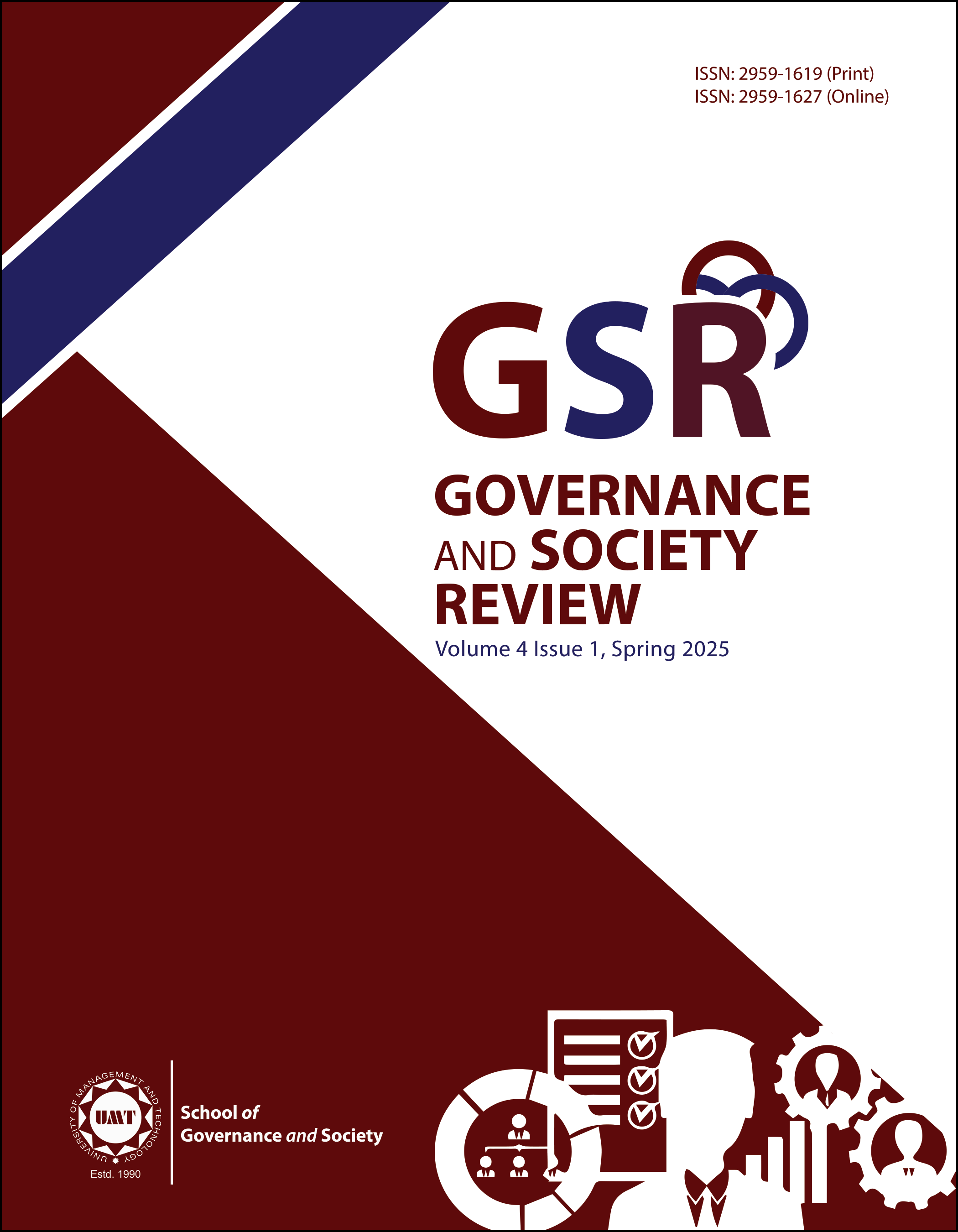Ineffectiveness of Social Institutions and Violent Conflicts in Nigeria
Abstract
 Abstract Views: 0
Abstract Views: 0
This study explores the complex relationship between ineffectiveness of social institutions and violent conflicts in Nigeria by applying the theoretical lenses of anomie and functionalism. Nigeria's diverse socio-economic and political landscape is marred by numerous challenges, including corruption, poverty, insecurity, and weak governance, which have led to various forms of violent conflicts over the course of its history. Indeed, the ineffectiveness of social institutions has created an environment where individuals and groups resort to violence as a means to achieve their goals. This study draws on Robert Merton's anomie theory, which posits that a disconnect between societal goals and means can lead to deviant behavior. It also applies Émile Durkheim's functionalism theory, which emphasizes the importance of social institutions in maintaining social order. The study also reveals that ineffective social institutions, including economic deprivation, weak governance, corruption, inadequate education, lack of security, and the failure of the healthcare system have contributed to the emergence and persistence of violent conflicts in Nigerian society. This study concludes that the revitalization of the country’s economy will strengthen other institutions and allow them to perform their roles and unburden their responsibilities as prerequisite to the security and development of Nigeria.
Downloads
References
Abdullahi, H. I. (2021). Smart cities, security and urban crime control: Theories and perspectives. PS Opus Publications.
Adebayo, A., & Ogunrinola, I. O. (2006). Contemporary dimensions of the unemployment problem in Nigeria: A special challenge under the National Economic Empowerment and Development Strategy. The Nigerian Economic Society.
Adegbami, A., & Adeoye, J. O. (2021). Violent conflict and national development in Nigeria. Hatfield Graduate Journal of Public Affairs, 5(1), Article e9. https://doi.org/10.15760/hgjpa.2021.5.1.9
Akanbi, A. L. (2025). Ineffectiveness of institutions in curbing extra-judicial killings in Nigeria: Implications for national development. Global Research Journal of Management and Social Sciences, 16(2), 1–7. https://doi.org/10.5281/zenodo.14931241
Alshehri, M. (2024). The role of religion in addressing contemporary social and political issues. American Journal of Humanities and Social Sciences Research, 8(10), 196–199.
Damon, W., & Lerner, R. M. (Eds.). (2008). Child and adolescent development: An advanced course. John Wiley & Sons.
Falola, T. (2009). Colonialism and violence in Nigeria. Indiana University Press.
Hassan, A. A., & Abdulkareem, H. B. (2023). Common 21st-century social vices among the youth. ASEAN Journal of Community and Special Needs Education, 2(1), 35–44.
Kirlin, J. J. (1996). What government must do well: Creating value for society. Journal of Public Administration Research and Theory, 6(1), 161–185. https://doi.org/10.1093/oxfordjournals.jpart.a024298.
Lindholt, L. (Ed.). (2003). Human rights and the police in transnational countries. Martinus Nijhoff Publishers.
Obumneke, E. (2012). Youth unemployment and its socio-economic implications in Nigeria. Journal of Social Science and Public Policy, 4(1), 47–59.
Omeje, K. (2004). The state, conflict & evolving politics in the Niger Delta, Nigeria. Review of African Political Economy, 31(101), 425–440. https://doi.org/10.1080/0305624042000295521.
Osaghae, E. E., & Suberu, R. T. (2005). A History of Identities, Violence and Stability in Nigeria. Centre For Research on Inequality, Human Security And Ethnicity. https://www.ecoi.net/en/document/1155789.html
Reiss, D. (1995). Genetic influence on family systems: Implications for development. Journal of Marriage and the Family, 543–560. https://doi.org/10.2307/353911.
Rusho, M. A., Lokare, P., Narkhede, S. P., Palav, M. R., Salunkhe, I. B. (Eds.). (2024). Multidisciplinary aspects of education. Book Saga Publications.
Simon, W., & Peter, K. (2011). Enterprise-based youth employment policies, strategies and programmes: Initiative for the development of enterprise and strategies. International Labor Organization.
Solo, R. A. (2000). Economic organizations and social systems. University of Michigan Press.
Copyright (c) 2025 Lateef Ayandeji

This work is licensed under a Creative Commons Attribution 4.0 International License.







